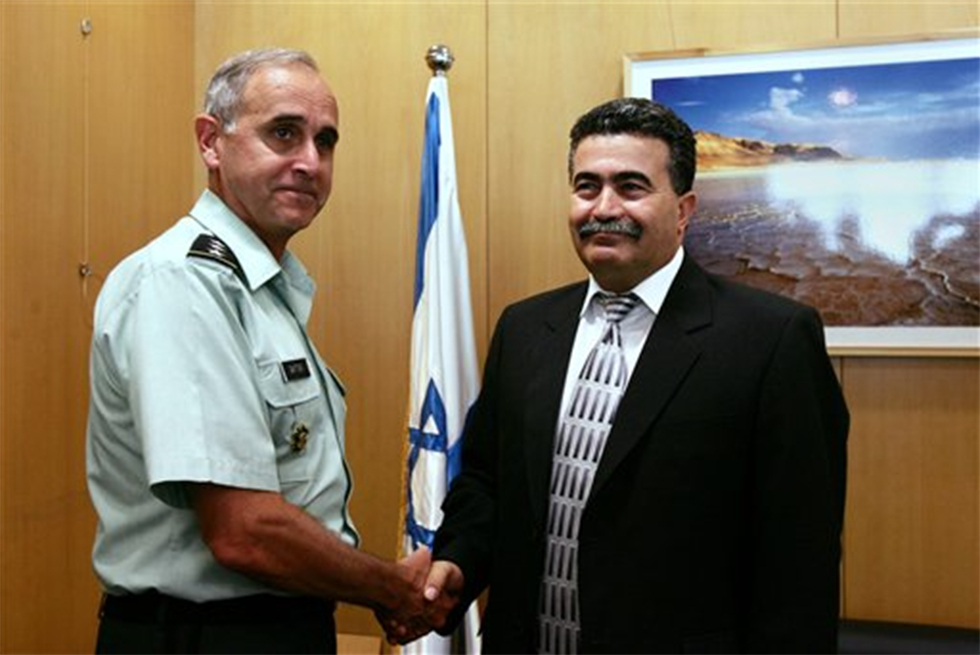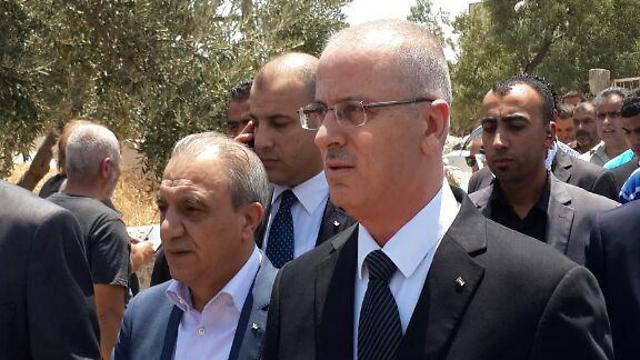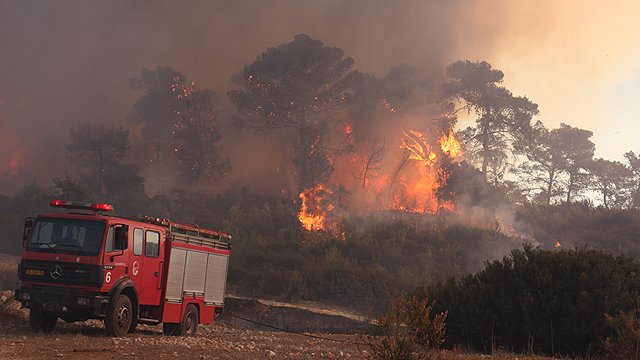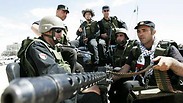
The many layers of the Palestinian Security Forces
Though frequently referenced and crucial to security cooperation with Israel and other countries, the Palestinian security apparatus is rarely fully comprehended. Herein, the different offices, forces and units are separated and explained, including their close relations with their Israeli counterparts.
Israelis have mostly heard of the “Palestinian Security Forces,” but few know about their different branches and leaders or about their security cooperation with Israel and other countries.
A brief history
The 1994 Cairo Agreement and 1995 Oslo II Accord created the PASF "to guarantee public order and internal security for the Palestinians of the West Bank and the Gaza Strip.”
The original plan was to create six different security services. But the PA has since created a number of additional services because PLO Chairman Yasser Arafat feared the consequences of few people amassing too much power.
At its outset, PASF was primarily comprised of members of the “Palestine Liberation Army” (PLA) and received international assistance to develop its forces until 2000, but the eruption of the second intifada dramatically changed the PASF's relationship with the Israeli security services. PASF forces participated in the armed confrontations with Israel and in many cases, its leaders turned a blind eye to violence against Israel.
Vision of Oslo turns into anarchy
The PA did not prevent terrorist activities. On the contrary, they promoted them and sought to protect terrorists in security facilities. Consequently - and in light of the deterioration and expanding rift that had formed between the PA and the Israeli defense establishment - the IDF began attacking and destroying Palestinian security facilities.
“The protection of public order” as envisioned by the Oslo Accords crumbled as PASF rapidly lost control of the Palestinian street, which descended into several years of anarchy.
Only after the death of Arafat and the subsequent election of President Mahmoud Abbas did gradual security service reform and renewed contacts between PASF and the Israeli security services come. The US contributed to this effort, establishing the United States Security Coordinator (USSC), which oversaw the rebuilding and professional development of PASF under the leadership of General Keith Dayton.
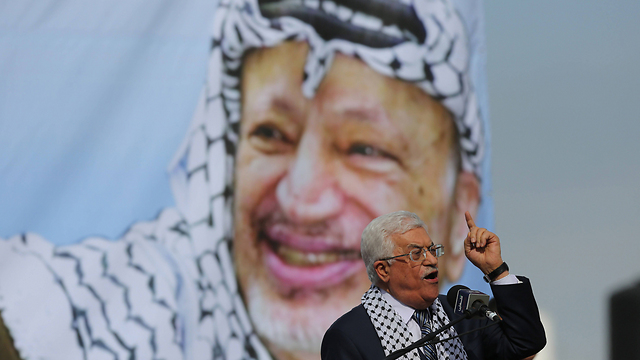
Dayton helped professionalize the mechanisms and foster trust between Israeli and Palestinian security chiefs. His efforts bore so much success that Hamas labeled the senior officers involved in the efforts as “Daytons” - a term which took on a derogatory meaning in the eyes of those affiliated with Hamas and Islamic Jihad.
As a result of the professionalism of the forces and the improvement of relations, the IDF began to gradually withdraw its forces from Area A and transfer control to PASF. 2007 constituted a significant milestone for the Palestinian forces. On the one hand, security coordination with Israel was renewed while on the other hand the PA lost control over the Gaza Strip to Hamas. Following the takeover, the PA deactivated its Gaza-based forces and has since only operated in the West Bank.
Who is in PASF?
According to different estimates, the PASF includes between 25,000-30,000 personnel. The precise number of PASF forces and its budget is unknown to the public. The PASF receives a set portion of the PA's annual budget. Additionally, the various forces receive supplementary budgets from various sources such as foreign intelligence agencies. The money is used to strengthen their forces, purchase equipment, for training.
Naturally, there is a hierarchy between the different branches, but they are constantly fighting for the spotlight. The different branch chiefs compete to gain access to Abbas’s inner circle and to win the approval of the Israeli security services and, as a result, of foreign security agencies as well.
Moreover, according to Palestinian law, security chiefs are limited to four-year terms, but many remain in their positions for much longer periods.
General Intelligence Service (GIS) - This GIS is one of the two most prestigious PASF bodies. It was created after the Oslo Accords and comprises two parts of the Palestinian Liberation Army - the “United Security” and the “Central Security.” The GIS is the body responsible for security operations beyond the borders of the PA, including counterintelligence and security operations. In some ways, the GIS is the Palestinian equivalent of the Mossad.
The GIS is also responsible for thwarting terror attacks in the West Bank. And even though it cannot legally operate outside of Area A, its cadres work covertly in Areas B and C, which are under the Israeli control, and sometimes in East Jerusalem. Such activities, which usually involve arresting suspects and taking them to Area A for investigation, are carried out swiftly and secretly.
Due to the secrecy of the organization, GIS personnel operate in civilian clothing and their facilities are unmarked and unknown to the public and located in residential buildings. According to various estimations, the GIS has a holding facility in every Palestinian province, in which the GIS forces interrogate suspects.
Maj.-Gen. Majid Faraj, 54, has been heading the agency since 2009. Faraj was born in the Dheisheh refugee camp in Bethlehem and lost his father to IDF fire in 2002, during the second intifada. Faraj is known to have a smiling and pleasant disposition and is considered one of the highest-ranking PASF officials. Moreover, Faraj is the only one among all of his PASF counterparts who is involved in politics and is thus considered to be one of Abbas’ closest confidantes.
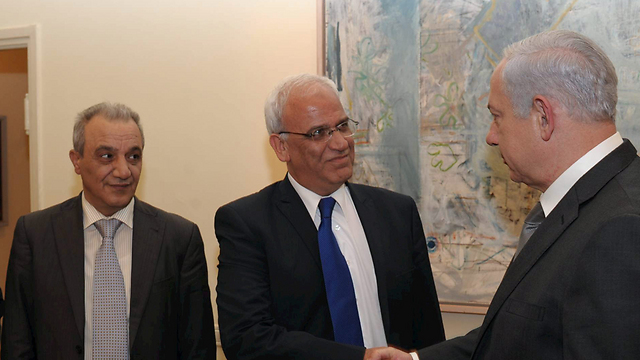
Faraj is also involved in the diplomatic process with Israel and participated in the latest round of negotiations in 2014, which ended in failure. While he is well known to all international players involved in the peace process, the fact Faraj doesn't speak fluent English is to his detriment. Moreover, in the past he has was involved in reconciliation talks between Fatah and Hamas on behalf of the Palestinian president and his close relations with Abbas has led many to believe he could succeed him.
Preventive Security Service (PSS) - PSS is a prestigious security branch in the PA whose main responsibilities include maintaining internal security in the Authority and uncovering criminal, security or political offenses before they are committed. In practice, the PSS is the equivalent to the Shin Bet. However, its missions are almost identical to those of the GIS. Similar to GIS personnel, PSS officers operate in civilian attire, and they carry out both clandestine and public operations.
The PSS was established by Fatah operatives who came to prominence in the territories prior to the Oslo Accords. It tracks, monitors and stops the activities of Hamas and Islamic Jihad in an effort to weaken these organizations' influence in the West Bank. The PSS agents infiltrate Hamas and Islamic Jihad cells in both the West Bank and Gaza and collect intelligence using wiretapping and various other means. Hamas has often claimed that PSS interrogators torture their operatives in the West Bank. The branch has 11 holding facilities in the West Bank.
Its chief Ziyad Hab al-Rih, who also holds the rank of major general, is one of the veteran leaders in the PASF and has led the organization in the West Bank since 2003. Unlike Faraj, Hab al-Rih lacks political talent but is described by his inner circle as a top professional and a secretive figure who avoids the media and the public like the plague. Because of the often overlapping functions the PSS and GIS serve, and the desire to find favor in the eyes of Mahmoud Abbas, there are natural tensions between Faraj and Hab al-Rih.
The Palestinian National Security Forces (PSF) - The PSF is essentially the Palestinian army and constitutes the largest branch of the PASF. It is divided into nine battalions trained by British and Italian forces at the military academy in Jericho, while US forces train them at a facility in Jordan.
The PSF provides support to other PASF branches and conducts large scale operations and arrests in the Palestinian territories, similar to the way the Shin Bet assists the IDF during large-scale raids. Recently, arrest operations took place in the Balata and Jenin refugee camps, where many PSF forces were deployed. They are also stationed in the entrances and exits of Area A.
Algerian-born Maj.-Gen. Nidal Abu Dukhan, 48, commands the PSF. Abu Dukhan previously headed special operations for the Presidential Guard (PG). He has been described by officials in his inner circle as a serious man but not a prodigy.
Palestinian Civil Police (PCP) - The PCP is responsible for maintaining public order and fighting crime ranging from solving murders and robberies to traffic policing. The Palestinian police are also sometimes responsible to stop Palestinian protesters seeking to arrive at areas of friction along the borders of Area A. The PCP is extremely professional and is respected by foreign police forces. It has division of identification and forensic science and canine unit, and its officers participate in international continuing education programs through Interpol.
The force is commanded by Maj.-Gen. Hazem Atallah who, unlike Faraj and al-Rih, is educated and speaks English. He has been described as intelligent, albeit arrogant, and as someone who views himself as superior to others. His father is Atallah Atallah, who was a senior official in the Palestinian Liberation Army during the period preceding the Oslo Accords.
The Presidential Guard (PG) - The PA's elite unit consists of the VIP Protection Unit and a special commando unit. The organization originated from Force 17, a Fatah commando and special operations unit that existed prior to the Oslo Accords. The PG's personnel protect the Palestinian president, his residence and the Mukataa (the PA's headquarters) in Ramallah. They are also responsible for the protection of the Palestinian prime minister, senior ministers and officials occupying sensitive posts.
The PG, headed by Maj.-Gen. Munir Al-Zuabi, is also responsible for protecting and escorting foreign delegations visiting the Palestinian Authority. Compared to corresponding units in Arab countries, the Palestinian Presidential Guard is considered a high-quality force. The Guard also trains at the military academy in Jericho, where it has an open training area, a simulated urban training center, shooting ranges and living quarters.
Military Intelligence (MI) - This is a relatively small unit responsible for tracking and handling members of the PASF who are involved in criminal or terror activities, exposing collaborators with Israel or with agents of other countries, preventing the infiltration of hostile figures into the security services and handling disciplinary transgressions of PASF personnel. The Palestinian Military Intelligence unit is a hybrid of the Israeli Director of Security of the Defense Establishment and the military police.
The Military Intelligence unit is led by Maj.-Gen. Zakaria Misleh, who is described as lacking character and charisma.
Military Liaison - This unit is responsible for liaison with its corresponding unit in Israel - the District Coordination and Liaison (DCL) office in the Civil Administration. They maintain a permanent line of communication with Israel.
The unit, led by Maj.-Gen. Jihad al-Jayousi, hands Israelis who have accidentally entered PA territory over to the IDF, notifies Israel about “price tag” attacks, receives advanced warnings to withdraw Palestinian forces from specific areas ahead of IDF raids to carry out arrests in Area A, etc.
The Civil Defense - The Civil Defense is the equivalent of Israel's Fire Department. Its functions include fighting fires and rescuing people trapped in cars or buildings. Its personnel are provided with life-saving equipment, which is considered of a relatively low standard. However, they do, from time to time, purchase new equipment. The unit train for extreme scenarios by offering aid in natural disasters around the world.
The Civil Defense was commanded by Maj.-Gen. Mahmoud Issa, but he recently died due to a medical complication. He is replaced by Nasser Youssef, who served under Issa.
Security coordination stronger than ever
The political process has been in a deep freeze for the past year. There exists a deep-seated lack of trust between Benjamin Netanyahu and Mahmoud Abbas which has only intensified as a result of seven months of violence. This notwithstanding, the security cooperation between Israel and the PA has never been better or stronger.
Furthermore, the Palestinian security forces now stand at the peak of their professional capabilities. A significant portion of their performance depends on their security coordination, which includes regular meetings between senior PASF officials and their Israeli counterparts, exchanging information and intelligence, surrendering weapons seized in Area A, demonstration-crowd-dispersal measures for the PCP, and the transfer of the PCP's findings from detainee investigations to the Shin Bet.
The Palestinian security apparatus has assisted Israel on more than one occasion to locate wanted suspects. This was the case in Operation Brother’s Keeper when they searched for the gang responsible for the kidnapping and murder of three Israeli teenagers in 2014.
The coordination also includes criminal matters, such as the returning of Israelis who entered Area A, and intelligence is shared between the respective police forces. This is why, for example, there is an Israeli police officer at every Israeli DCL and a Palestinian police officer at the corresponding Palestinian DCL, who meet and exchange information, such as fingerprints and criminal information.
Coordination also takes place in civilian matters, such as when fires broke out in areas bordering territory under Israeli and Palestinian control. During the massive Carmel fire in 2010, the PA sent firefighters from the Civil Defense to assist the Israelis.
This security coordination between the PA and Israel removes Hamas from the picture, as this coordination is one of the central reasons that Hamas's military infrastructure is so shaky in the West Bank. Many of its military operatives are captured in their initial stages thanks to security coordination.
The incitement against security forces and against coordination does not only exist in the media affiliated with Islamic groups and on social media, but also in mainstream Arab media outlets, such as Al Jazeera and Al Mayadeen which are also critical of the security cooperation.
In hindsight, it is clear that the security coordination between Israel and the PA has withstood many tests, such as Operations Cast Lead, Pillar of Defense, and Protective Edge in Gaza, state crises, terror attacks, tension on the Temple Mount and the current wave of terrorism. Despite these challenges, the partnership remains robust. The PA's security coordination is not only with Israel, but also with other intelligence agencies, such as those in the United States, United Kingdom, and Jordan.
Light weapons and SUVs
Normally, all the heads of the Palestinian defense establishment meet for a weekly evaluation with the Palestinian prime minister Rami Hamdallah. These assessment meetings also take place between them and Mahmoud Abbas, albeit with less frequency. Hamdallah also functions as a type of defense minister and is familiar with the small details of the security forces' activities.
Another important senior official in the Palestinian security apparatus is Civil Affairs Minister Hussein al-Sheikh, who speaks fluent Hebrew and is responsible for all issues relating to civilian cooperation with Israel. He is also deeply involved on the sensitive security side of the relations between the Palestinians and Israel, and is credited for the success of the talks with the Israeli side. Al-Sheikh (along with the other leaders in the Palestinian security forces) is in direct contact with the Coordinator of Government Activity in the Territories, Maj. Gen. Yoav Mordechai, whom he meets regularly, either in Ramallah or Israel.
The bulk of the weaponry in the hands of the Palestinian security apparatus are small arms, along with those designed to disperse protests and vehicles made for on-road and off-road driving. In the first years following the forces' creation, it was intended to transfer to them light-armored vehicles. However, the decision was never implemented, and the vehicles were simply left to rust in Jordan. The Palestinian security forces often complain about military shortages for training.











